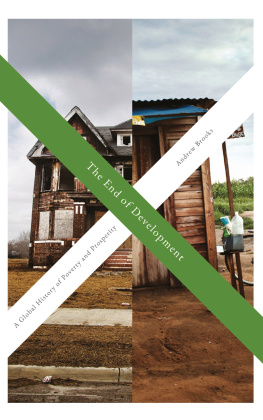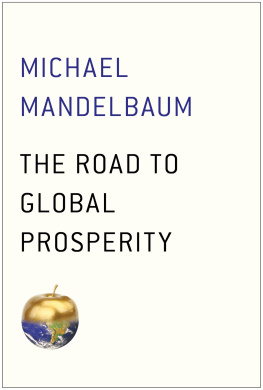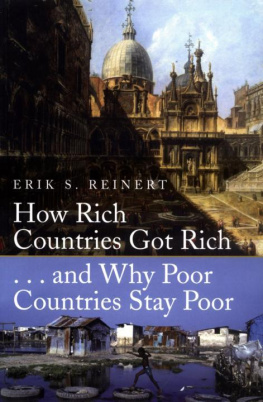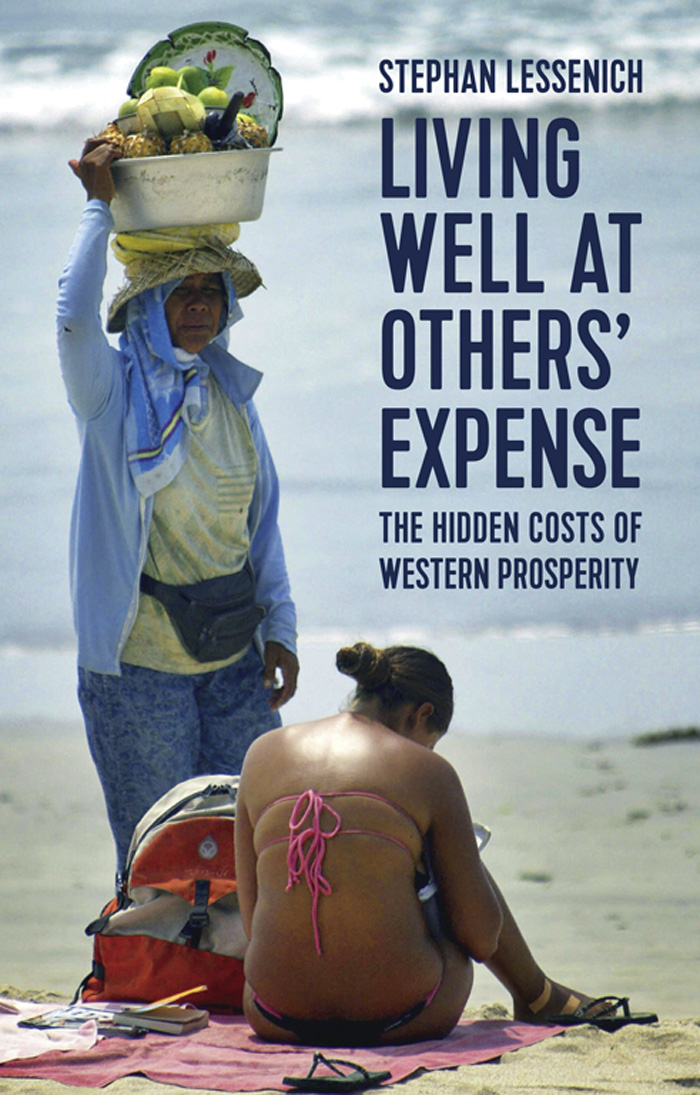Table of Contents
Guide
Pages
Living Well at Others Expense
The Hidden Costs of Western Prosperity
Stephan Lessenich
Translated by Nick Somers
with the assistance of Stephan Lessenich
polity
First published in German as Neben uns die Sintflut. Die Externalisierungsgesellschaft und ihr Preis Hanser Berlin im Carl Hanser Verlag, Munich, 2016
This English edition Polity Press, 2019
The translation of this work was supported by a grant from the Goethe-Institut.

Polity Press
65 Bridge Street
Cambridge CB2 1UR, UK
Polity Press
101 Station Landing
Suite 300
Medford, MA 02155, USA
All rights reserved. Except for the quotation of short passages for the purpose of criticism and review, no part of this publication may be reproduced, stored in a retrieval system or transmitted, in any form or by any means, electronic, mechanical, photocopying, recording or otherwise, without the prior permission of the publisher.
ISBN-13: 978-1-5095-2562-1
A catalogue record for this book is available from the British Library.
Library of Congress Cataloging-in-Publication Data
Names: Lessenich, Stephan, author.
Title: Living well at others expense : the hidden costs of Western prosperity / Stephan Lessenich.
Other titles: Neben uns die Sintflut. English
Description: Medford, MA : polity, 2019. | First published as Neben uns die Sintflut. Die Externalisierungsgesellschaft und ihr Preis. | Includes bibliographical references and index.
Identifiers: LCCN 2018041739 (print) | LCCN 2018043141 (ebook) | ISBN 9781509525652 (Epub) | ISBN 9781509525621 (hardback)
Subjects: LCSH: Social changeEconomic aspects. | GlobalizationEconomic aspects. | PovertySocial aspectsDeveloping countries. | EqualityEconomic aspects. | Income distribution. | Environmental degradationDeveloping countries.
Classification: LCC HM831 (ebook) | LCC HM831 .L4713 2019 (print) | DDC
339.22dc23
LC record available at https://lccn.loc.gov/2018041739
Typeset in 11 on 13 Serif by Toppan Bestset
Printed and bound in Great Britain by CPI Group (UK) Ltd, Croydon
The publisher has used its best endeavours to ensure that the URLs for external websites referred to in this book are correct and active at the time of going to press. However, the publisher has no responsibility for the websites and can make no guarantee that a site will remain live or that the content is or will remain appropriate.
Every effort has been made to trace all copyright holders, but if any have been overlooked the publisher will be pleased to include any necessary credits in any subsequent reprint or edition.
For further information on Polity, visit our website:
politybooks.com
It is a pervasive condition of empires that they affect great swathes of the planet without the empire's populace being aware of the impact indeed, without being aware that many of the affected places even exist.
Rob Nixon, Slow Violence and the Environmentalism of the Poor ()
Next to Us, the Deluge
The division of labour among nations is that some specialize in winning and others in losing.
Mariana, 5 November 2015
Caused by a minor earthquake, according to the mine operator Samarco Minerao SA, the mud flowing out of the reservoir engulfed surrounding villages and some of their inhabitants. Three-quarters of the 853-kilometre-long Sweet River became a toxic mix of iron, lead, mercury, zinc, arsenic and nickel residues, abruptly cutting off some 250,000 people from access to clean drinking water. After fourteen days, the tide of red mud reached the Atlantic coast and flowed out into the ocean, leaving behind a devastated ecosystem. At the Paris Climate Change Conference a few weeks later, the Brazilian President Dilma Rousseff described it as the worst environmental disaster in her country's history.
However striking the pictures may be of the mud-covered landscape and expired animals, of the dead river and its estuary, coloured a dirty red, the case of the Rio Doce is depressing not because of its uniqueness, but rather because of its perverse ordinariness. Rio Doce is everywhere. The causes of the accident, the way it was handled, its predictability and the reactions to it are typical of a state of affairs that exists worldwide. It is not only typical of an economic and ecological world order in which the opportunities and risks of social development are systematically distributed in an uneven fashion. It amounts to a textbook example of the ideal type the local, regional and global business-as-usual approach to the costs of the industrial-capitalist social model.
Together with BHP Billiton, it is the co-owner of the mine in Mariana through its subsidiary Samarco.
Samarco initially announced that the sludge from the burst reservoirs was not toxic and consisted mainly of water and silica. This announcement soon turned out to be false, as did the claim that the accident had been caused by earth tremors. More likely, the causes are to be found in familiar features of the administrations of third-world countries, namely corruption, clientelism and lack of controls. And, indeed, all these appear readily evident at first glance: there had been security concerns about the safety of the tailings dam for a long time, noted by the public prosecutor's office as early as 2013. In their criticism, the authorities also mentioned the immediate risk for the village of Bento Rodrigues, pointing out that no preventive measures of any kind had been taken to protect its inhabitants. The safety reviews ordered by Minas Gerais, the state with the largest ore-mining area in Brazil, were carried out not by independent experts but by members of the company itself. Almost at the same time as the dam burst, a commission within the senate, the upper house in the Brazilian parliament where the mining lobby can always count on political support voted for more flexibility in the regulation of mining operators by the authorities.
So, is it all a question of underdeveloped governance, failing institutions, a nonWestern political culture? Perhaps. The other side of the chronicle of this accident foretold is that, only a short time before it occurred, the physical stress placed on the dams had been significantly increased. In spite (or because) of the recent decline in world market prices, the two major corporations had increased the output of the Samarco mine to 30.5 million tons, a rise of almost 40 per cent compared with the previous year. In the case of Mariana, this market-flooding strategy had led to a large increase in waste from the mine and, as a result of this, the subsequent flooding of the surrounding area. Incidentally, the third and largest iron mine retention basin in Mariana is also showing dangerous cracks in its walls. And these are only three of 450 dams that hold back mining and industrial waste water in Minas Gerais alone. Around a dozen of these toxic reservoirs threaten the Rio Paraba do Sul and hence, indirectly, the supply of drinking water to the metropolitan region of Rio de Janeiro and its 10 million inhabitants.
What happened at the Rio Doce is a disaster for nature and for the people living in and off it yet it was not a natural disaster. The background to it is anything but natural. Its causes are to be found in the structure of the world economic system: in the development models which are influenced by this system of countries rich in natural resources; in the global market strategies of transnational corporations; in the hunger for resources of rich industrial countries, and in the consumer habits and lifestyles of their inhabitants. What happened in Mariana, Minas Gerais, Brazil, and what is happening there every day, beyond the accidents and disasters reported by the media, is not caused by local conditions at least not exclusively, and only peripherally, in the literal sense. What, from our perspective, happens at the periphery of the world, at the outposts of global capitalism, is connected with the central hub or, to be more precise, with the social conditions in those regions that believe themselves to be the centre of the world and that use their position of power in the global economic and political systems to dictate the rules that others must obey and whose consequences are felt elsewhere.








